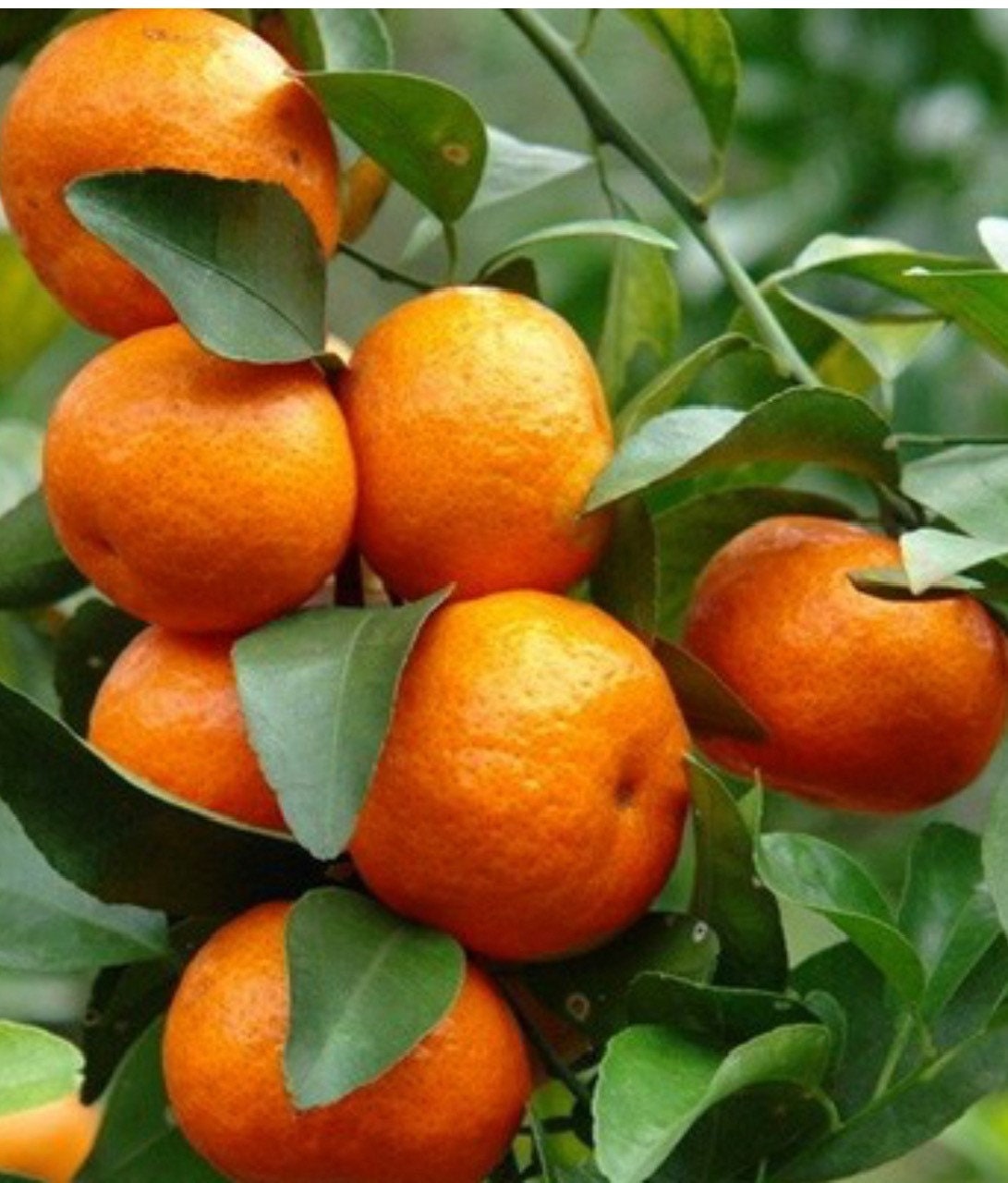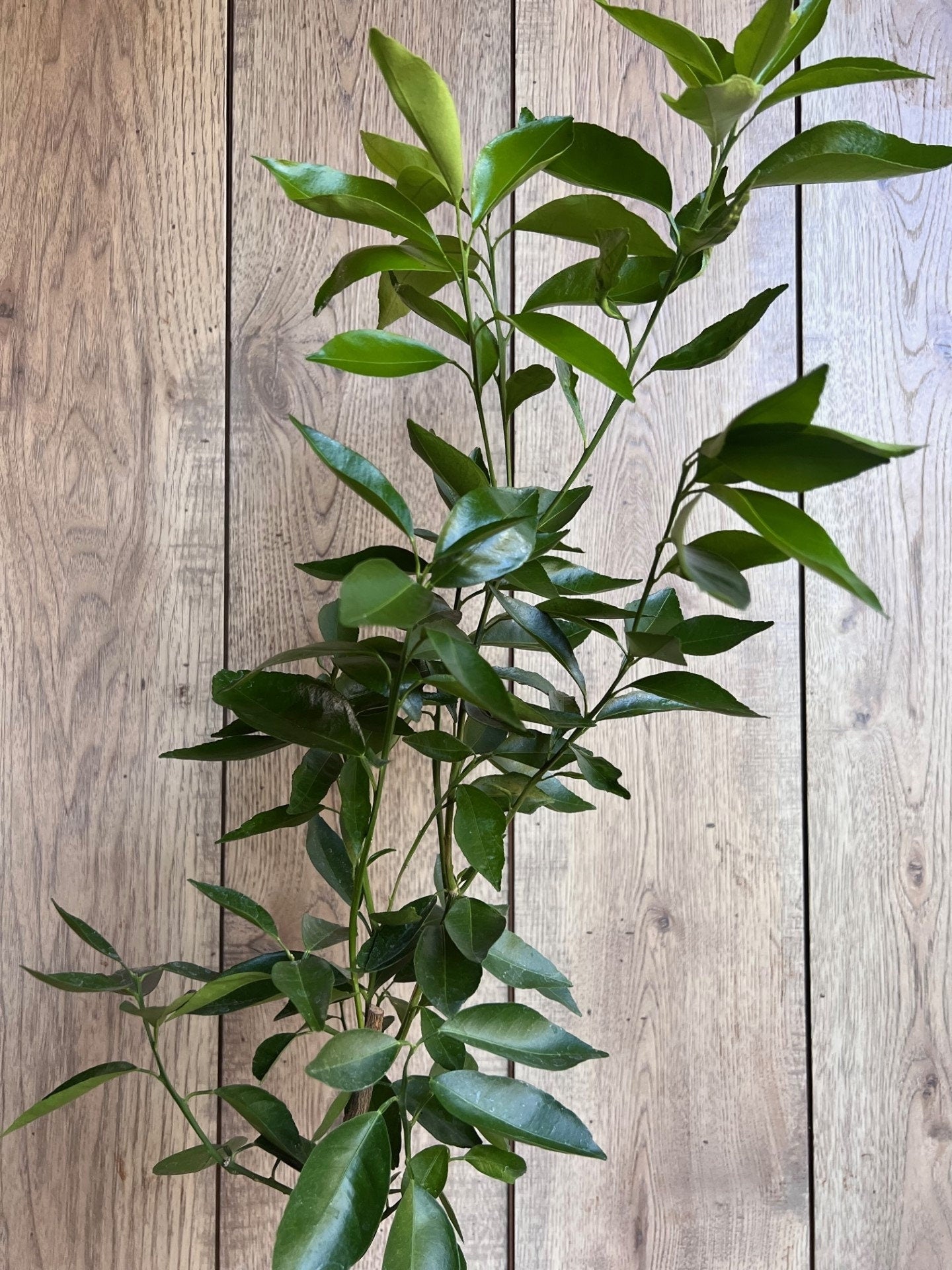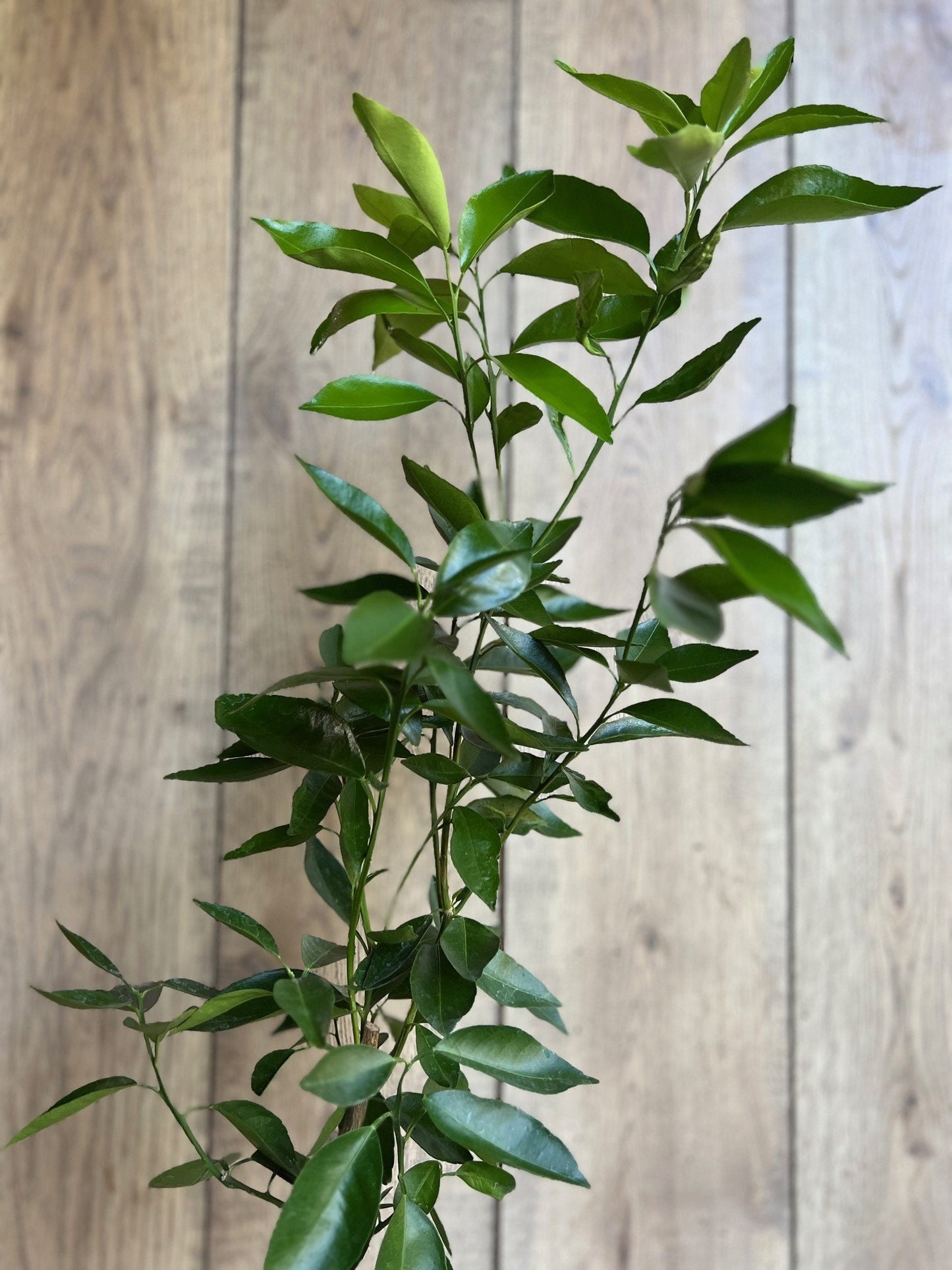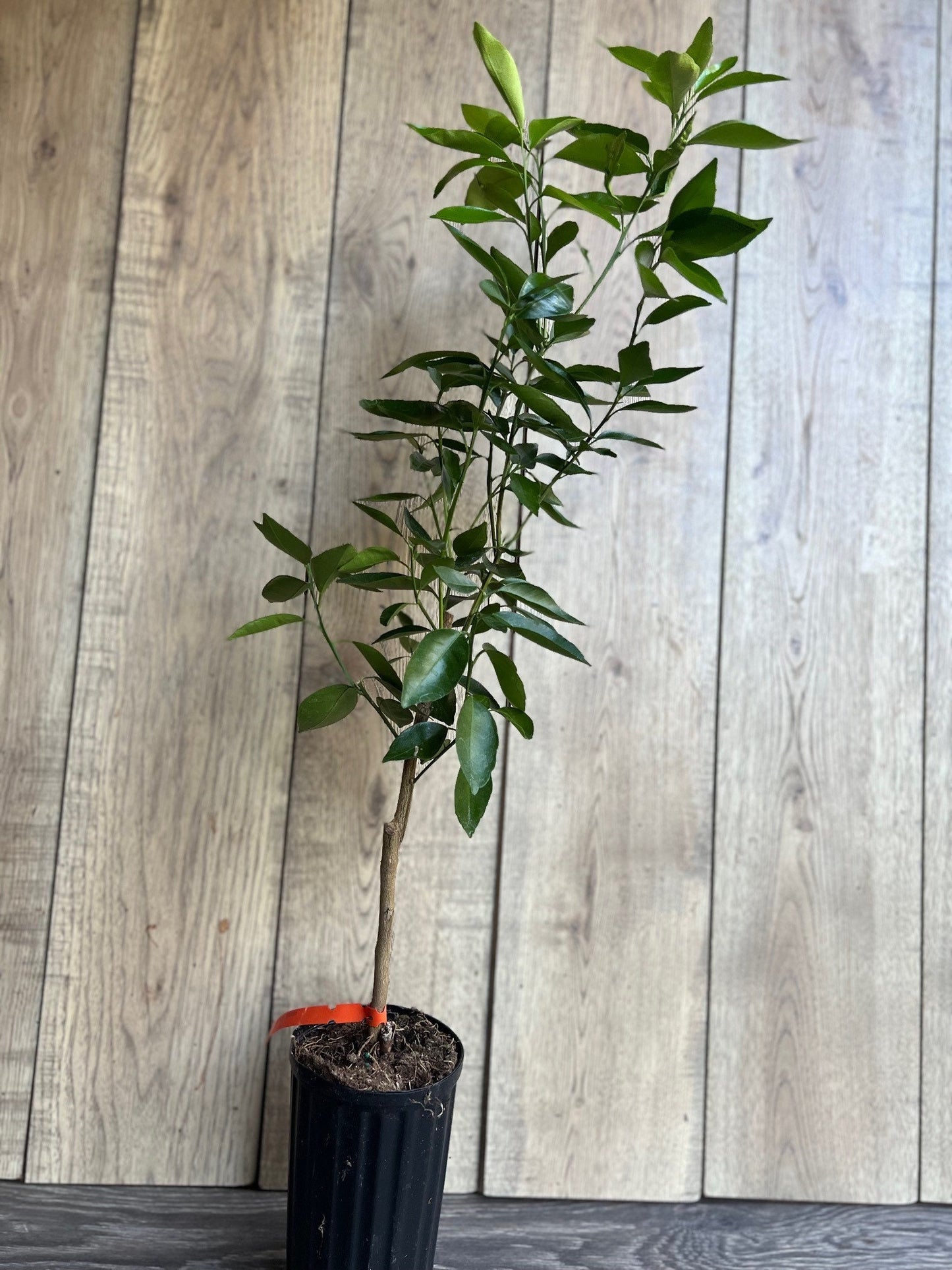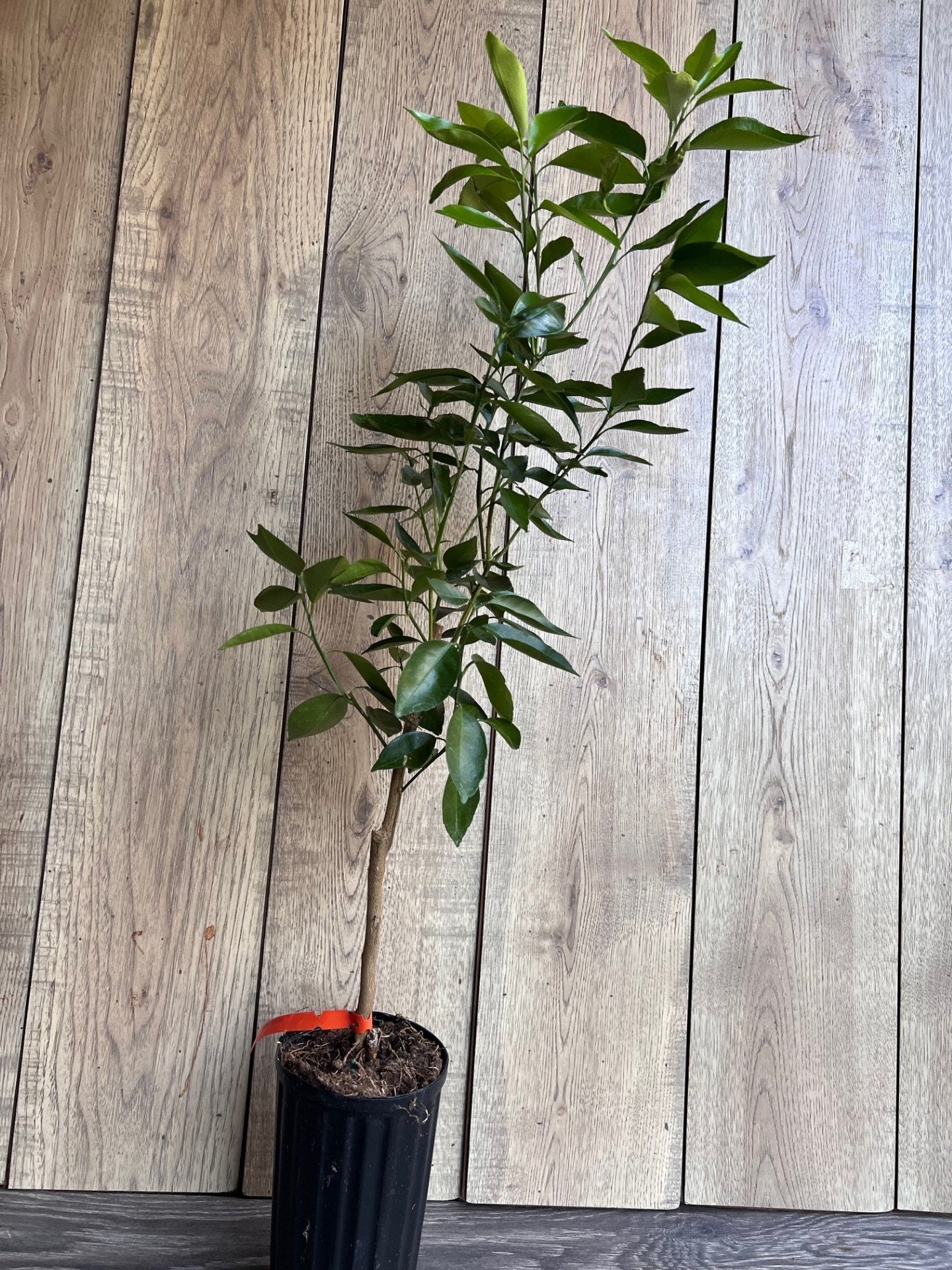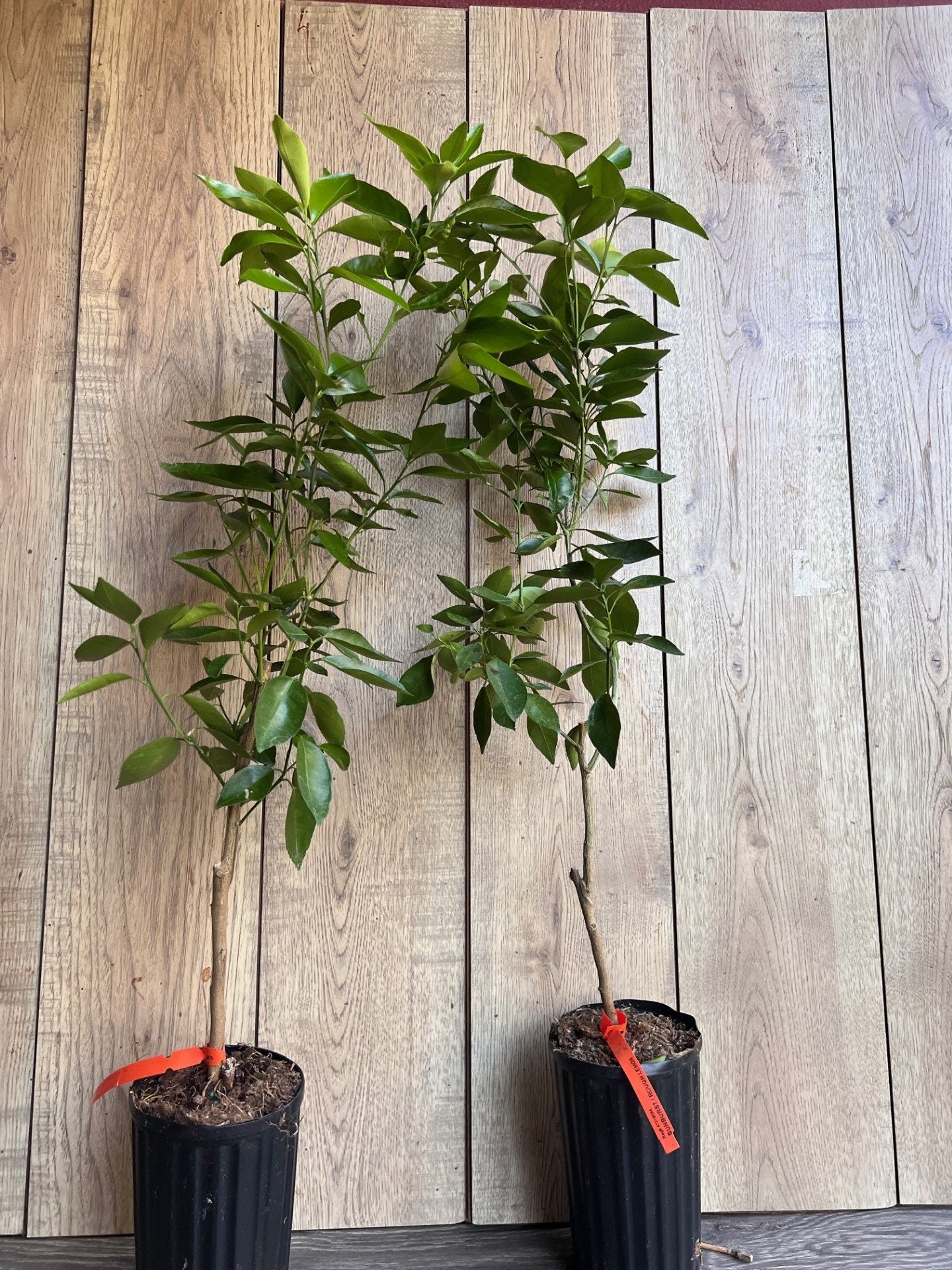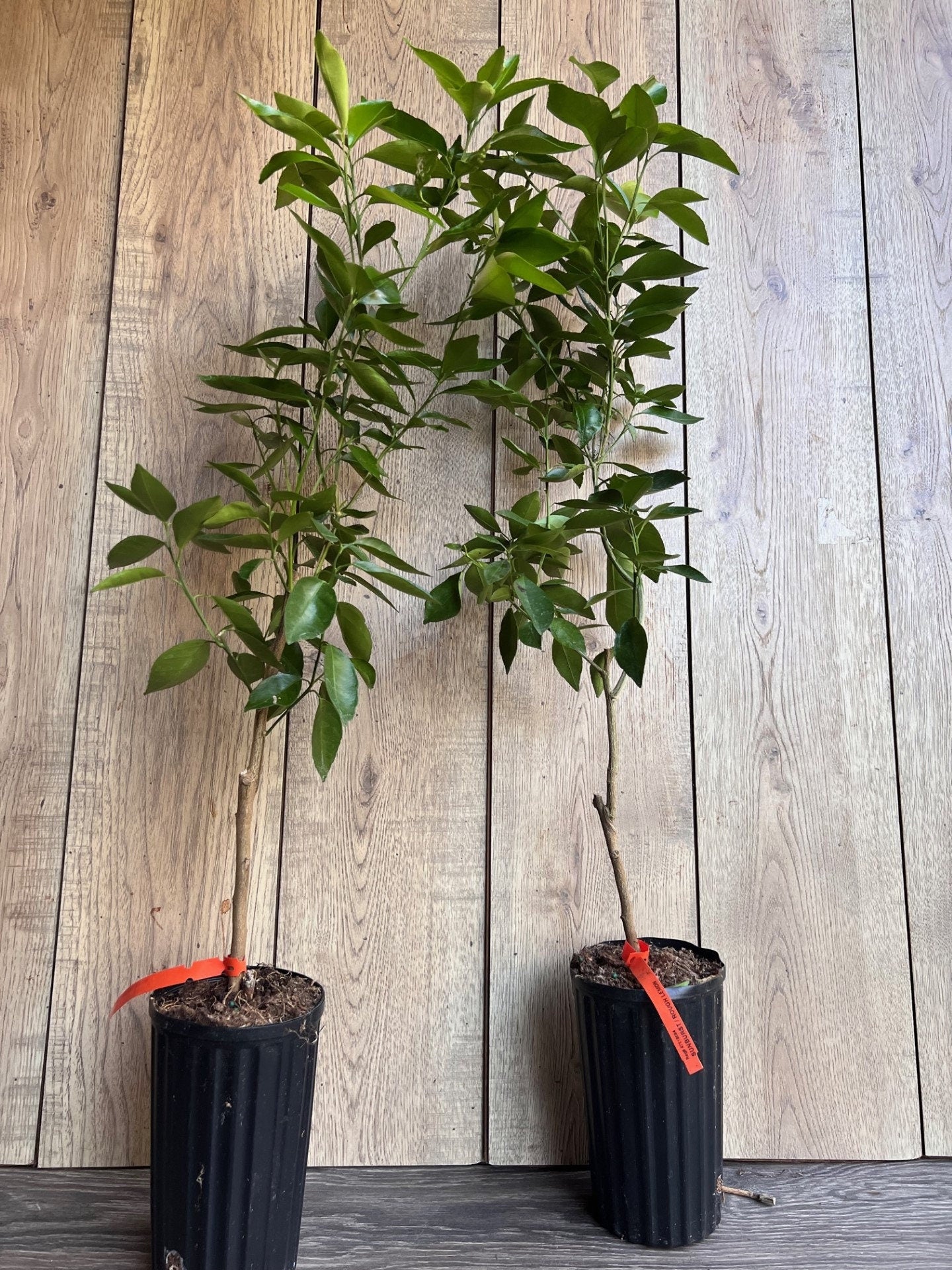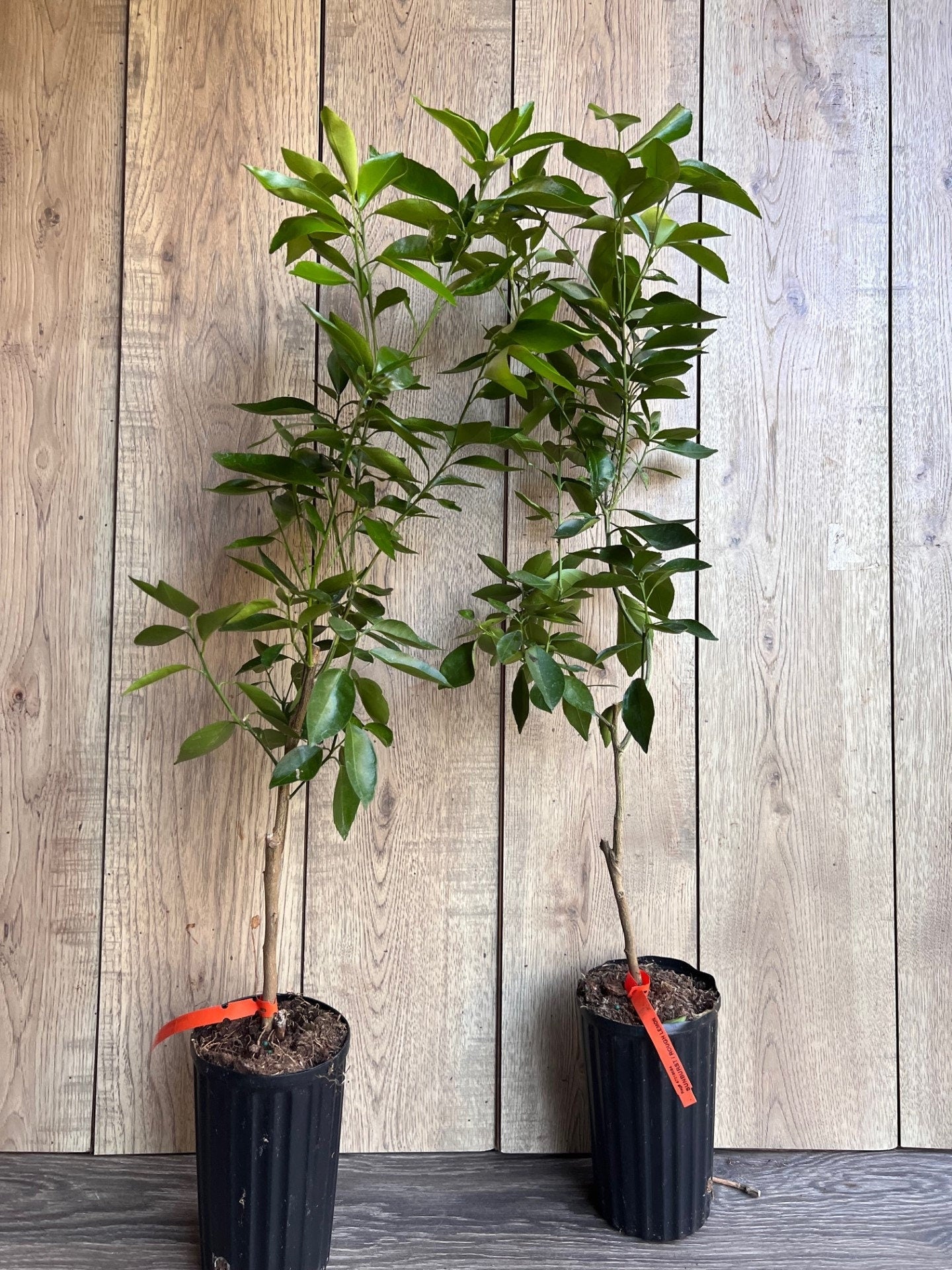1
/
of
8
Cara Cara Orange Tree in half Gallon Pot, Grafted. Florida Shipping Only
Cara Cara Orange Tree in half Gallon Pot, Grafted. Florida Shipping Only
Regular price
$48.70 USD
Regular price
$64.94 USD
Sale price
$48.70 USD
Unit price
/
per
Shipping calculated at checkout.
Couldn't load pickup availability
You will receive a Cara Cara Orange in a 1/2-gallon pot, similar to the pictures.
The Cara Cara Orange is a sweet, seedless variety of navel orange, loved for its pinkish-red flesh, juicy texture, and sweet flavor. Growing this tree at home is rewarding, as it produces delicious fruit perfect for snacking, juicing, or desserts. Here's how to care for your Cara Cara Orange tree:
Light Requirements
- Full Sun: Cara Cara oranges need 8-10 hours of direct sunlight each day to thrive and produce fruit.
- Indoors: Place near a south- or west-facing window for optimal sunlight.
- Outdoors: Choose a location with full, unobstructed sunlight throughout the day.
Watering
- Consistent Moisture: Keep the soil evenly moist, but not soggy. Allow the top 1-2 inches of soil to dry out between waterings.
- Watering Frequency: Water deeply once a week during spring and summer. Reduce watering in winter as the plant’s water needs decrease.
- Water Quality: Use filtered or rainwater to avoid chlorine and fluoride, which can damage the plant.
- Proper Drainage: Ensure good drainage to prevent root rot.
Temperature
- Warm Temperatures: Cara Cara oranges thrive in temperatures between 70°F to 85°F (21°C to 29°C). Avoid frost and temperatures below 32°F (0°C).
- Indoors: Keep away from cold drafts or temperature fluctuations caused by air conditioning or heating vents.
Humidity
- Moderate Humidity: Best in 40-50% humidity.
- Indoors: In dry conditions, use a humidifier or a humidity tray (a shallow tray filled with pebbles and water) to raise local humidity.
Soil
- Well-Draining, Slightly Acidic Soil: Prefers sandy-loam soil with a pH of 5.5 to 6.5.
- For Containers: Use citrus-specific potting mix or amend regular soil with perlite or sand to improve drainage.
- For Ground Planting: Ensure good drainage to avoid soggy soil.
Fertilizing
- Fertilize During Growing Season: Feed with a balanced, slow-release citrus fertilizer high in nitrogen, phosphorus, and potassium. Apply every 6-8 weeks in spring and summer.
- Stop Fertilizing in Winter: Reduce or stop fertilizing in fall and winter when the tree is dormant.
- Organic Options: Fish emulsion or compost tea are good organic choices.
Pruning and Maintenance
- Prune to Shape: Regular pruning helps maintain the tree’s shape, especially in containers. Trim dead or crossing branches to improve airflow.
- Remove Suckers: Remove shoots growing from the rootstock to prevent energy loss and improve fruit production.
- Prune in Spring: Prune before the growing season begins to encourage healthy growth.
Pollination
- Self-Pollinating: Cara Cara oranges are self-pollinating, but pollinators (like bees) or hand-pollination (using a soft brush) will increase fruit yield.
Repotting
- Repot Every 1-2 Years: Repot your tree when the roots crowd the container, typically every 1-2 years.
- Choose a Pot: Select a pot 1-2 inches larger with proper drainage.
- Repot in Spring: Repot when the tree enters the growing season to reduce transplant shock.
Pests and Problems
-
Common Pests:
- Aphids: Use insecticidal soap or a strong water stream to remove them.
- Spider Mites: Treat with neem oil or insecticidal soap.
- Citrus Scale: Remove with rubbing alcohol or neem oil.
-
Common Issues:
- Yellowing Leaves: Caused by overwatering, nutrient deficiencies (especially nitrogen or iron), or pests. Check soil moisture, fertilize appropriately, and inspect for pests.
- No Fruit or Poor Fruit Production: Could be from insufficient sunlight, lack of pollination, or nutrient deficiencies. Ensure 8+ hours of sunlight and hand-pollinate if indoors.
- Fruit Drop: Caused by stress from inconsistent watering, poor nutrition, or extreme temperatures. Maintain consistent care.
Toxicity
- Non-Toxic to Pets: Cara Cara Oranges are safe for cats, dogs, and other animals.
Share
